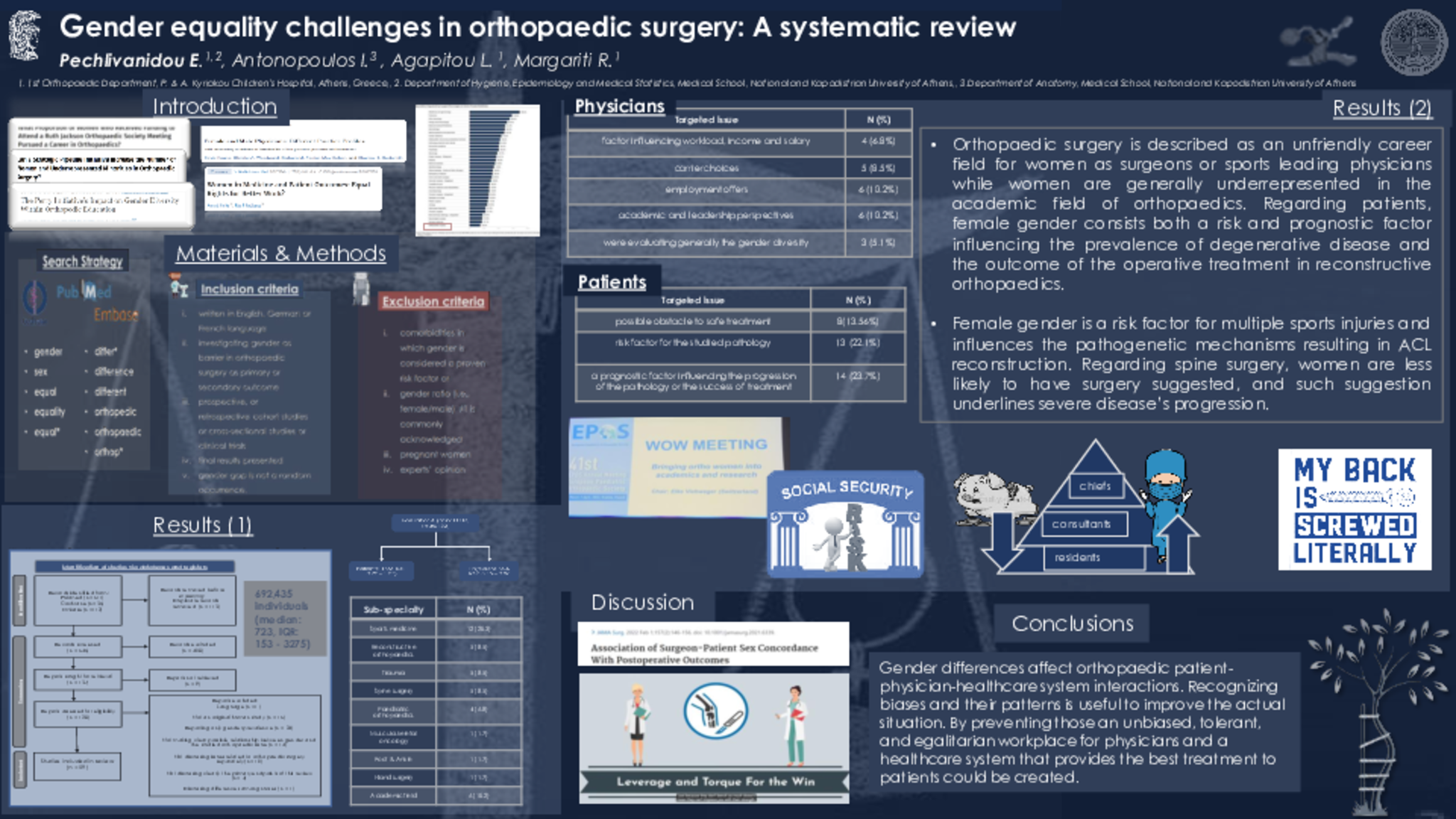Purpose: Several studies have examined gender-equality challenges and ways to improve women’s representation and management. Orthopaedic surgeons and patients are less gender equitable than them of other surgical disciplines. This systematic review summarizes these findings and highlights orthopaedic surgery gender inequality.
Methods: Search of the PubMed, Embase and Cochrane databases was carried out to extract human studies investigating the gender gap in orthopaedics, trying to highlight the equality challenges orthopaedic surgery faces. Studies incorporating patients with comorbidities in which gender is a proven risk factor and pregnant women were excluded.
Results: This systematic review included 59 studies involving 692,435 people (mean females/males ratio: 4.44), spanning the years 1987-2023. Regarding the targeted population, 35(59.32%) studies focused on patients, while 24(40.68%) on physicians. Orthopaedic surgery is described as an unfriendly career field for women as surgeons or sports leading physicians while women are generally underrepresented in the academic field of orthopaedics. Regarding patients, female gender consists both a risk and prognostic factor influencing the prevalence of degenerative disease and the outcome of the operative treatment in reconstructive orthopaedics. Female gender is a risk factor for multiple sports injuries and influence the pathogenetic mechanisms resulting in ACL reconstruction. Regarding spine surgery, women are less likely to be suggested operation and such suggestion underlines severe disease’s progression.
Conclusions: Gender differences affect orthopaedic patient-physician-healthcare system interactions. Recognizing biases and their patterns to prevent them can create an unbiased, tolerant, and egalitarian workplace for physicians and a healthcare system that provides the best treatment to patients.
- 6 προβολές




